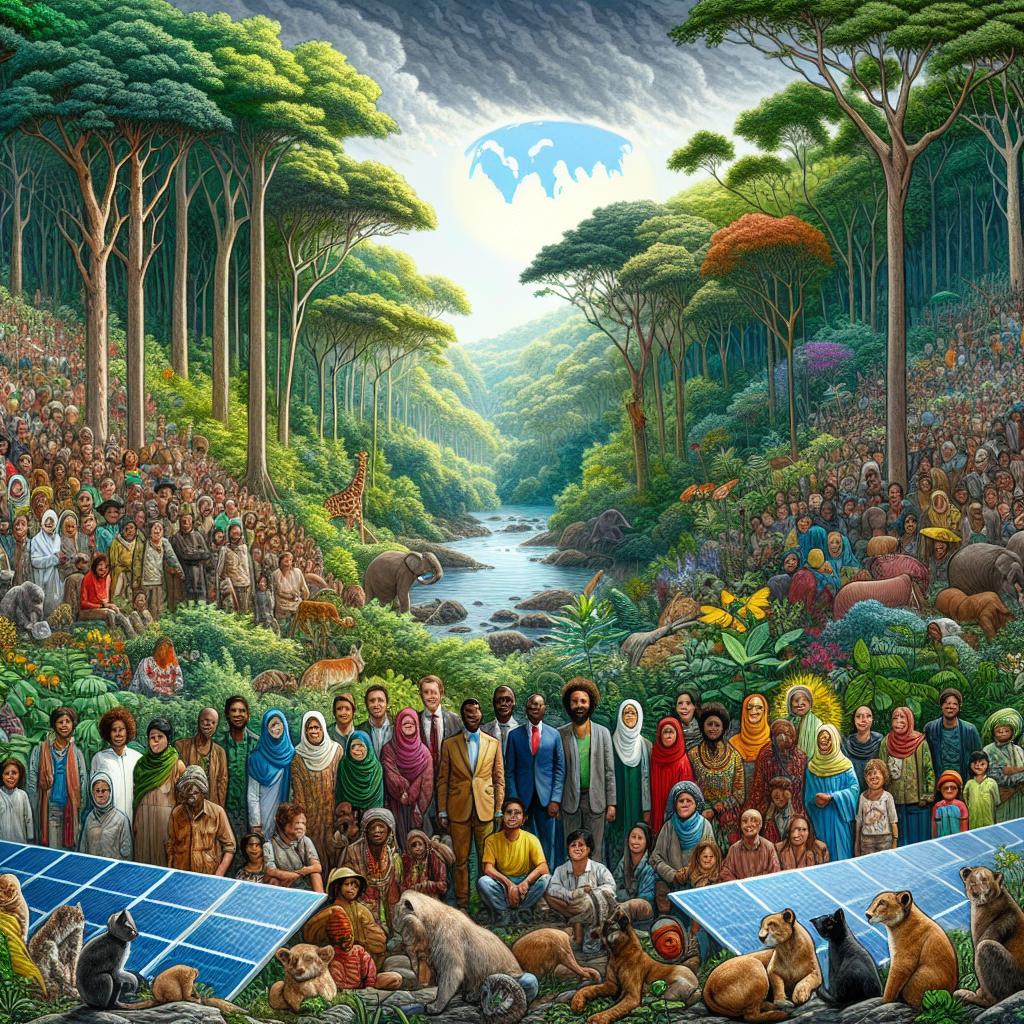Protecting Endangered Species and Our Planet

As the world continues to grapple with the pressing issue of climate change, the interconnected crises of endangered species, deforestation, and unsustainable production and consumption patterns are threatening the very fabric of our ecosystems. It is imperative that we take a holistic approach to address these challenges and move towards a future that prioritizes forest protection, sustainable agriculture, and zero waste.
Let us begin by addressing the plight of endangered species. With an estimated 1 million species at risk of extinction, the situation is dire. According to the World Wildlife Fund, the primary causes of this loss are habitat destruction, poaching, and climate change. Forests, in particular, serve as crucial habitats for numerous species, making their protection a top priority.
The importance of forest protection cannot be overstated. Forests not only provide shelter and food for countless species but also play a vital role in maintaining the global carbon balance. This is where climate-smart agriculture comes into play. This farming approach aims to reduce greenhouse gas emissions while increasing carbon sequestration and enhancing agricultural productivity.
Sustainable agriculture, an integral part of this strategy, emphasizes practices that support biodiversity and minimize the environmental impact. This includes techniques like agroforestry, which combines trees with crops and livestock, and regenerative agriculture, which focuses on improving soil health. By adopting these practices, farmers can not only help protect forests but also contribute to mitigating climate change.
However, the transition to sustainable agriculture requires a significant shift in production and consumption patterns. Consumers must demand more transparency in the food supply chain and make informed decisions about the products they buy. This is where the concept of zero waste comes in. By reducing our waste and minimizing our consumption of single-use plastics, we can help decrease the overall demand for raw materials, thus reducing the pressure on forests and other natural resources.
Moreover, the adoption of renewable energy sources, like solar energy, is crucial in reducing the carbon footprint of agricultural processes and other industries. Solar energy can be used for irrigation systems, greenhouses, and even to power electric vehicles for transportation of goods. This shift towards renewable energy is essential not only for the preservation of our planet but also for the long-term sustainability and competitiveness of industries.
Governments, businesses, and individuals must all work together to create a world where endangered species can thrive, forests are protected, and sustainable production and consumption patterns are the norm. This can be achieved through policies that incentivize eco-friendly practices, public-private partnerships, and individual actions that prioritize our planet and its inhabitants.
The future is not set in stone. Together, we have the power to make a difference. Let us embrace the challenge and strive towards a future where all species can live in harmony with nature, and our planet remains a vibrant and resilient home for generations to come.




